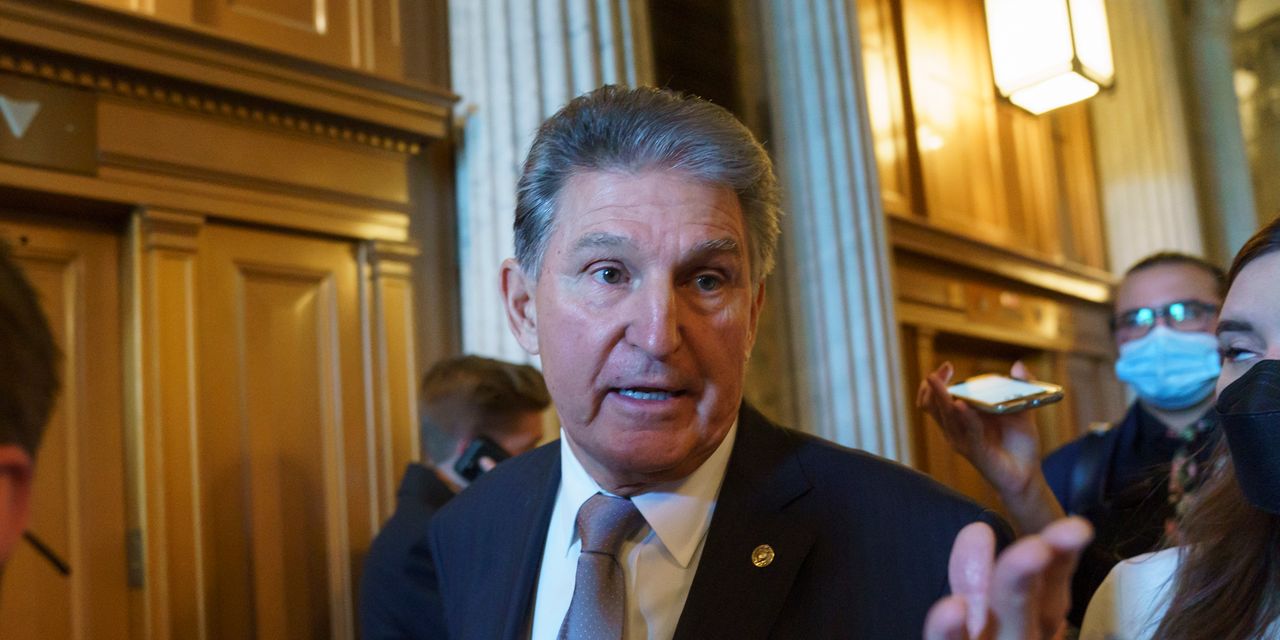The Biden administration’s international tax agenda suffered a setback when Sen. Joe Manchin rejected a 15% minimum tax on multinational companies this past week, dimming prospects of turning last year’s global tax agreement into reality.
Biden administration officials had planned to use Democratic fiscal legislation to enact the U.S. piece of the deal struck last year by Treasury Secretary Janet Yellen and more than 130 other countries. They wanted quick action to set a 15% minimum tax on U.S.-based multinational companies in each country where they operate, a move aimed at showing international leadership and prodding other countries to follow suit.
Now the administration must try to urge other countries to go first and hope that momentum, pressure and the potential for lost revenue can compel a future Congress to act.
Yellen told reporters Saturday in Nusa Dua, Indonesia, where she attended meetings with finance ministers from the Group of 20 major economies, that she was confident that other countries would proceed with the deal, eventually pulling the U.S. along. A Treasury Department spokesman said the U.S. remains committed to the global minimum tax and will look at every avenue possible to get it done.
Backers of the global tax deal might now have to hope that the Biden administration has more success in persuading foreign governments than it did in swaying Congress. In recent weeks and months, the U.S. has been helping to push the European Union toward adoption of the minimum tax, first working to overcome Poland’s objections and more recently putting pressure on Hungary, the current holdout. The U.S. said this month that it would terminate its tax treaty with Hungary.
The global tax agreement had appeared to be a signal achievement for Yellen, who helped salvage negotiations that were flailing in the final months of the Trump administration. But the Biden team has been unable to get Congress to pass the legislative changes needed to implement it.
Last October’s deal had two key pieces. One, the minimum tax, would put a 15% floor under corporate tax rates. It was designed to help countries raise revenue and prevent companies from shifting profits into low-tax jurisdictions. It was designed to be optional but with mechanisms that encourage nations to join once a critical mass of countries have implemented the tax. That is the part that Manchin blocked this past week.
The other piece would let countries with large consumer markets impose their corporate taxes on more income and remove unilateral digital-services taxes aimed at U.S.-based technology companies. That proposal, which would require U.S. congressional approval, is moving even more slowly. International negotiators recently extended their deadline into the middle of 2023, and if Congress is then fully or partially controlled by Republicans, U.S. action on that piece would also be difficult to advance.
Even without the 15% minimum tax, the U.S. is already the only major country that has a minimum tax on its companies. In the 2017 tax law, as part of a series of changes to international tax rules, the Republican Congress and then-President Donald Trump created a 10.5% minimum tax.
The proposed global deal called for two major changes to that system: the rate increase and the country-by-country calculation. It also had a set of rules for calculating the taxes and for coordinating the systems across borders.



